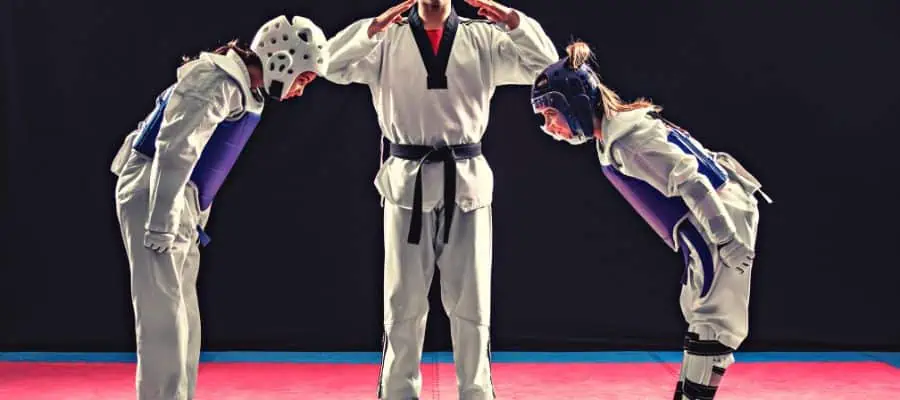In the world of competitive sports, athletes often search for every minor advantage that could tip the scales in their favor. Within the martial art of Taekwondo, questions frequently arise regarding the importance of weight and its impact on performance. Does a competitor’s weight influence the kicks, punches, or overall success in the sport?
The assertion that weight plays a significant role in Taekwondo is both simple and complex. Weight matters in Taekwondo, but not in the way one might expect. While no upper limit restricts participation based on weight, athletes must consider how their weight class affects their strategy and opponents.
Going into a match, Taekwondo practitioners tailor their technique to make the most of their physical attributes. Competitors in lighter classes may rely on speed and agility, whereas those in heavier classes often depend on power and reach to overpower their opposition. Understanding these nuances allows athletes to leverage their weight, making it a pivotal part of their competitive edge.
Impact of Weight in Taekwondo Performance

In Taekwondo, an Olympic martial art, the importance of weight and body composition cannot be overstated. Athletes must carefully manage their weight to fit into specified weight classes for tournaments, as it directly impacts performance and health. The right weight class enables effective use of physical strength, speed, and agility, which are crucial for scoring with kicks and punches.
Weight management and the strategic selection of a weight division are vital for taekwondo practitioners. It often involves balancing maintaining muscle mass and achieving a desirable body type, which can influence endurance, muscle strength, and flexibility. An athlete’s fitness and muscular configuration affect the ability to move quickly and generate considerable force.
The weight loss process in Taekwondo typically involves intense training and a strict diet. Training routines focus on building lean muscle, enhancing muscular strength, and cardio work to boost fitness and endurance. Diet is complementary, often emphasizing hydration, protein, fruits, and vegetables to support recovery and maintain health. A strong emphasis on nutrition, including the consumption of adequate electrolytes, aids in recovery and sustains energy levels.
Let’s consider the impact of weight change on Taekwondo performance:
| Aspect of Performance | Impact of Weight Change |
|---|---|
| Speed & Agility | Excessive weight can reduce speed and limit agility. Ideal weight promotes optimal response times. |
| The right weight supports muscle development, which is vital for powerful techniques. | Appropriate weight helps maintain stamina, which is essential for competition day. |
| Endurance & Energy Levels | Keeping within the ideal weight range can enhance flexibility, which is beneficial for kicks. |
| Flexibility | Keeping within the ideal weight range can enhance flexibility, beneficial for kicks. |
Managing weight is an ongoing challenge, requiring an understanding of one’s own body and a commitment to health and fitness within the sport’s rules and regulations. Successful weight management can improve concentration, self-confidence, and even mental health, reflecting the interconnectivity of physical and psychological well-being in Taekwondo.
Can You Be Overweight and Do Taekwondo?

Engaging in taekwondo is certainly possible for individuals who may be considered overweight. This martial art emphasizes technique, flexibility, and mental discipline rather than solely on the practitioner’s weight. Those at a higher weight can benefit from the physical activity and cardiovascular exercise that comes with the practice of taekwondo.
Beginning a new physical activity such as taekwondo might raise concerns about overweight individuals’ participation capacity. However, taekwondo schools typically encourage people of all body types to join, offering modified training exercises and personalized guidance that make martial arts accessible. It is recommended to consult with a healthcare provider before starting any new exercise program, especially if pre-existing health conditions exist.
Benefits for Overweight Practitioners:
- Improved fitness and potential for weight loss
- Enhanced flexibility and balance
- Development of self-defense skills
Practical Considerations:
- Begin with light training and gradually increase the intensity.
- Wear a dobok (taekwondo uniform) designed for comfort and mobility.
- Focus on achieving personal milestones rather than competing with others.
While being overweight may present some challenges, taekwondo can be a rewarding and inclusive activity with the right approach and modifications. The philosophy of this martial art teaches that the only real limit is oneself, echoing the words of Bruce Lee that one must “lengthen the mind” if one cannot “lengthen the leg.” The key is practicing consistently and communicating openly with instructors to ensure a safe and effective training experience.
If this article was helpful to you, don’t forget to add it to your Pinterest board.
Recent Posts
What is Manachai's Fighting Style? Unveiling Muay Thai Mastery
Manachai, a celebrated figure in the Muay Thai world, has captivated audiences with his exemplary martial prowess. Hailing from the heartlands of Thailand, his name is synonymous with the art of...
What Was Chamuekpet Hapalang's Fighting Style? Unveiling Techniques
Chamuekpet Hapalang was a renowned figure in the world of Muay Thai (record 200-48-2), embodying a fusion of Muay Bouk and Muay Khao styles. Originating from Thailand, the art of Muay Thai is known...

